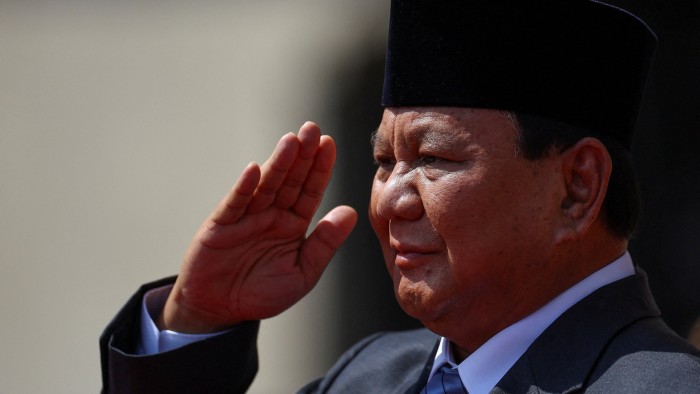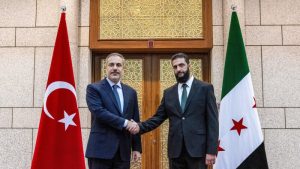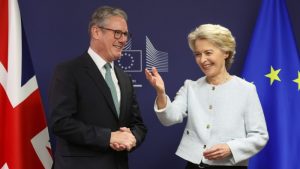Indonesia’s Prabowo suggests scrapping ‘expensive’ elections for regional leaders

Unlock the Editor’s Digest for free
Roula Khalaf, Editor of the FT, selects her favourite stories in this weekly newsletter.
Indonesia’s President Prabowo Subianto has suggested scrapping direct elections for regional leaders on cost grounds, raising doubts about the former general’s commitment to democracy.
Indonesia, the world’s third-largest democracy, currently holds direct elections for regional governors, mayors and regents every five years, but Prabowo said such leaders should be chosen instead by the country’s separately-elected regional legislatures.
“Let’s think and ask, what is this system? How many dozens of trillions [of rupiah] are spent in one or two days?” Prabowo said.
The president was talking on Thursday evening at an event organised by the Golkar party, which is part of his ruling alliance, and attended by senior leaders of several other political parties.
“So many party chairmen are here, we can actually decide this tonight,” he said. “Do not listen to foreign consultants. I don’t want to encourage us to be anti-foreigners but they probably don’t even think about us.”
In what appeared to be an imitation of foreign consultants, Prabowo said in a mocking tone: “You must uphold democracy. You should hold regional elections every three months.”
This is the first time Prabowo has called for change to Indonesia’s electoral system since coming to power in October. He has previously repeatedly said direct elections — both regional and presidential — are “expensive” and that “western ideas” of democracy do not work for Indonesia.
The comments reignited fears Prabowo would undermine Indonesia’s hard-won young democracy and resort to a leadership style similar to his late father-in-law, the authoritarian ruler Suharto, whose 30-year rule was ended in 1998 by popular protests.
Democracy activists had already voiced concerns about Prabowo in light of allegations made about him during his decades in the military.
Prabowo, a former commander of Indonesia’s special forces, has been accused of being involved in killings in East Timor as a young officer in the 1980s. He is also accused of being involved in the kidnappings of pro-democracy activists in the 1990s — allegations that led to his ousting from the military in 1998 and a two-decade ban on entering the US.
He has denied all the allegations against him.
Prabowo and his own Gerindra party have also advocated for the return to Indonesia’s 1945 constitution, under which the president was elected by parliament and not directly by the people. The old constitution also did not have any term limits on the presidency.
These provisions were changed after the downfall of Suharto. Indonesians did not elect the president in a direct vote until 2004.
Since then, Indonesians have voted enthusiastically in national and regional elections. In the February presidential election, which Prabowo won comfortably, the turnout was 81 per cent.
In the most recent elections for regional leaders in November, voter turnout was 71 per cent. Prabowo’s alliance dominated last month’s elections, though they lost in the capital Jakarta.
“Prabowo’s comments do not come as a surprise. [They] confirm what he aspires to be from very early on,” said Usman Hamid, executive director of Amnesty International Indonesia.
“The Indonesian people are fully aware that the cost of elections is very expensive. But I don’t think they will agree that their rights should be removed.”
Any move to amend the constitution could trigger protests, he said. “A return to Indonesia’s original constitution would also mean lower respect for freedoms. It would weaken the rule of law.”
#Indonesias #Prabowo #suggests #scrapping #expensive #elections #regional #leaders




